If you want to create a healthy, balanced life with less stress and more awareness, happiness, and fulfillment, our Meditation Guide for Beginners is just what you need.
Today, tension and stress have become a normal part of daily life, as the demands of the outside world and overwhelming responsibilities result in mental, emotional, and physical strain.
If you are a complete beginner in Meditation and you are thinking of starting with its practice, this two-part guide gives you clear and valuable basic information; it explains various experiences that can be lived during the meditation practice and recommends simple tips to integrate it easily as a habit in your lifestyle.
TABLE OF CONTENTS:
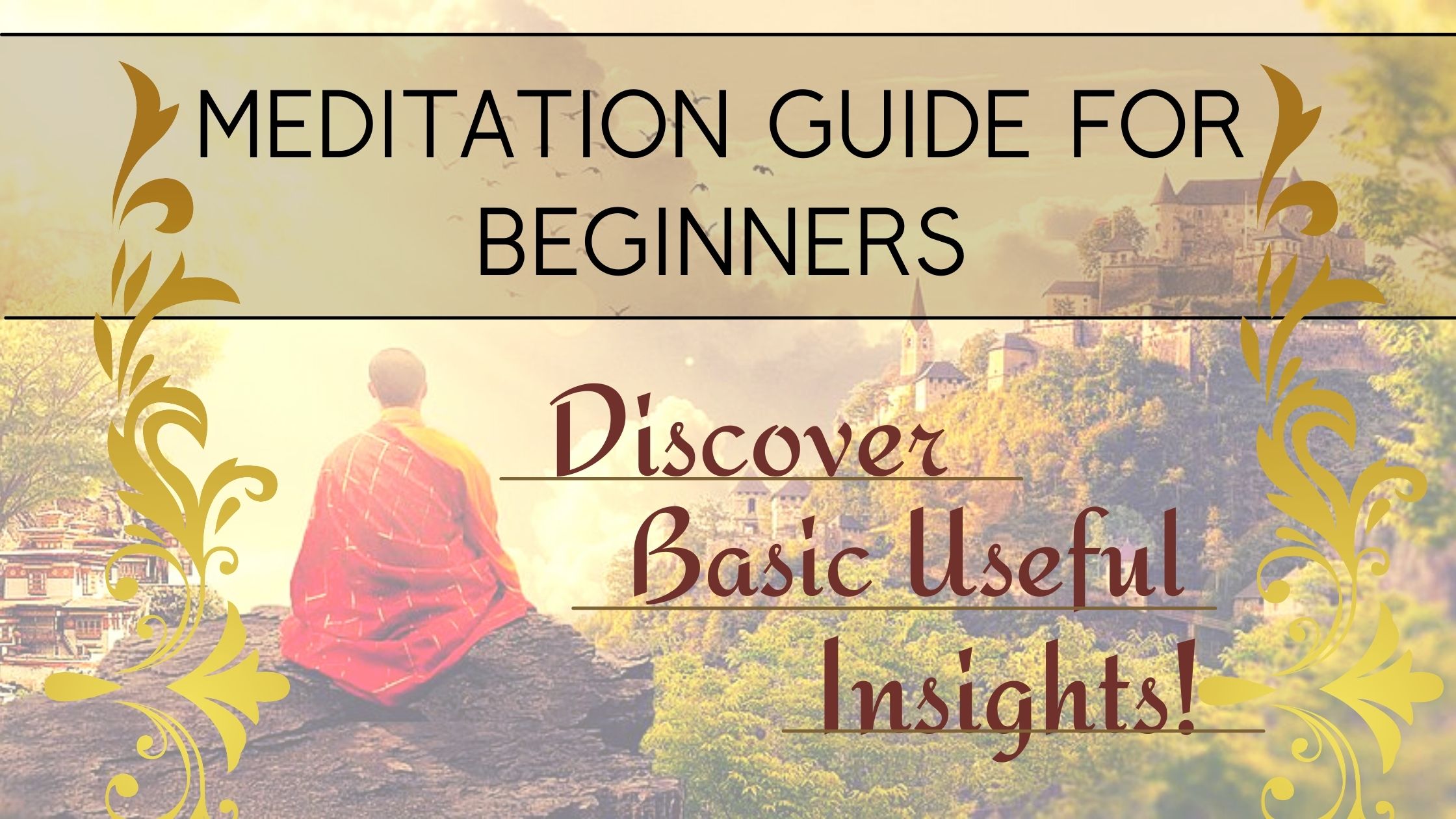
WHAT IS MEDITATION ABOUT?
In recent years, Meditation has become more widespread being known and practiced in every corner of the world. Few people have not heard of “meditation” or have a vague understanding of it.
The term “meditation” comes from the Latin meditori which means reflecting on something. Meditation is a simple and natural process with fantastic effects when practiced daily, bringing beneficial results in all levels of being: physical, mental, emotional, and spiritual.
Why do you want to meditate?
What would you like to have more present in your life?
It doesn’t matter which of the following reasons are yours:
- Less stress and anxiety.
- Peace of mind.
- To release and heal physically and emotionally.
- To slow down the rhythm of your life.
- More clarity and intuition.
- Deep knowledge of yourself.
- Harmony in your soul.
- A deeper meaning of life itself.
- Joy, love, and happiness within.
Meditation embodies all these.
Through meditation, you’re not limited by a conditioned life. Instead, you open yourself to endless possibilities with every thought, word, and action. With each moment of meditation, you connect to the peace and silence that radiate into the outer world. This is the magic of meditation. What truly matters is not just what you experience during meditation, but how it shapes the hours that follow.

WHO JOINED THE MEDITATION CIRCLE?
You can also join the millions of people worldwide who have discovered, through constant Meditation, balance, fulfillment, healing, and inner happiness.
Besides many well-known spiritual and personal development leaders such as Buddha, Dalai Lama, Mahatma Gandhi, Thick Nhat Hanh, Pema Chödron, Deepak Chopra, Jack Kornfield, Oprah Winfrey, John Kabat-Zinn, Ram Dass, Lao Zi, Anthony Robbins, George Mumford, etc. many actors, singers, athletes are also practitioners of Meditation.
Among them are Richard Gere, Tina Turner, Jennifer Aniston, Orlando Bloom, Annie Lenox, Madonna, Sting, Michael Jordan, Kobe Bryant, Phil Jackson, and Steve Kerr, to mention a few.
All these people have in common the desire for self-knowledge and the expansion of the mind to understand the potential of every moment of their lives.
Meditation has gained popularity and is recommended by physicians, psychologists, and cognitive behavioral therapists.
It was introduced and taught in some schools as a particular program and incorporated in some companies in the employees’ work schedules to overcome stress and fatigue and increase efficiency at work.
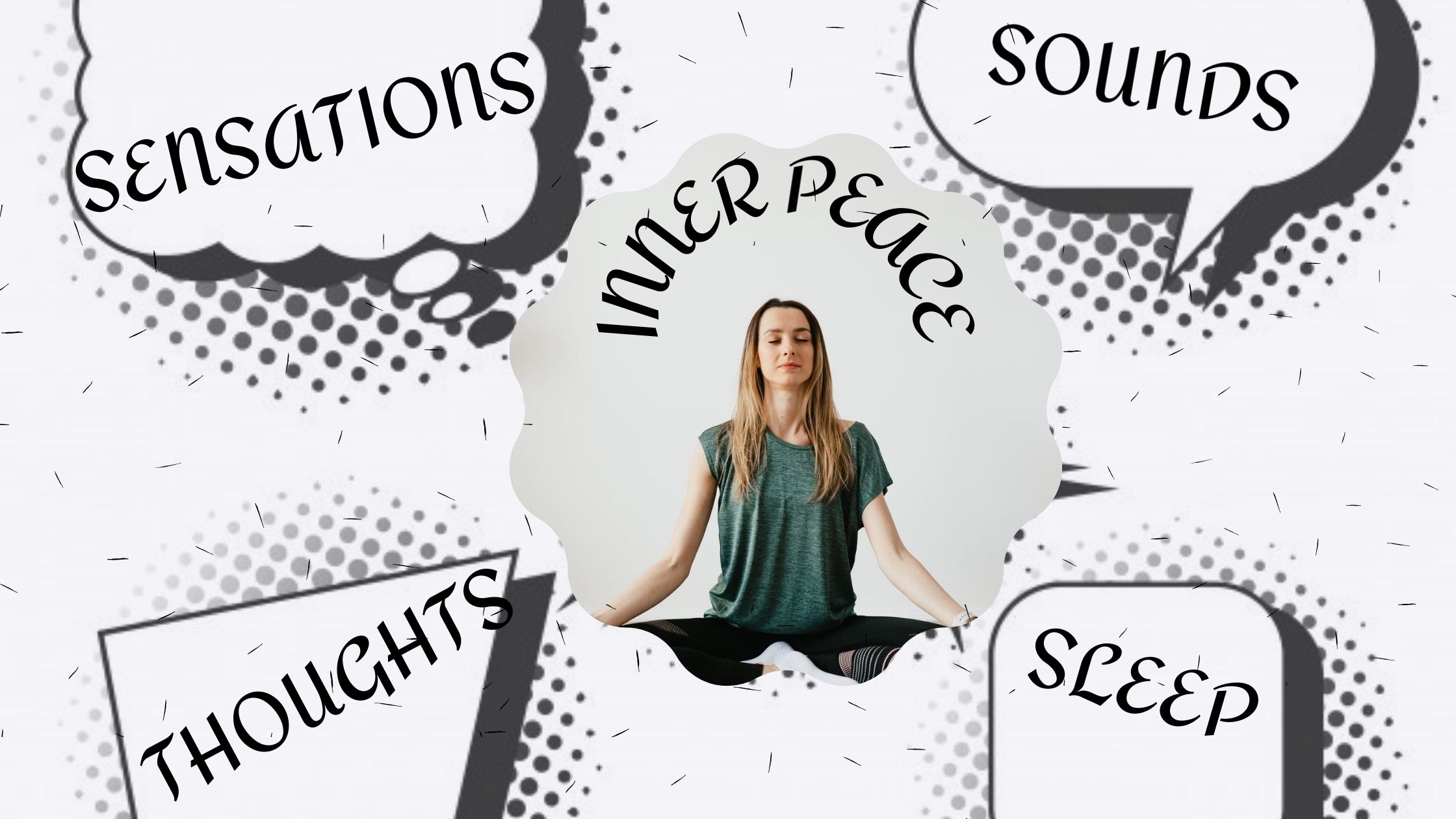
EXPERIENCES DURING MEDITATION
During Meditation, you live specific natural experiences that are part of the process of awareness through observation: thoughts, sensations, sounds, falling asleep, or a feeling of deep inner peace.
THOUGHTS
We’ve been conditioned to keep our minds constantly active to function, create, and achieve our goals.
Ten thousand thoughts go through our minds daily; some we keep, some we delete, and some we just let pass by. Thoughts want to keep us on constant alert as an explanation for every moment we live.
When we receive a thought, we give it a first meaning, then build more meaning around it or move on to the next one.
During Meditation, the capacity for consciousness is activated, and the mind, which wants to control and condition, transmits through your thoughts that it is against the new state.
That is why, when you meditate, it is normal for you to have thoughts of boredom, anxiety, and denial. They are silent but have a specific meaning. It’s essential to understand that no matter the thought, you don’t identify with it. You experience it.
Be patient with yourself, and do not give up! With each meditation practice, you’ll find the transition from an active mind to a quiet one becomes easier, as every thought gradually dissolves into inner peace and silence.
No matter what thoughts interrupt your Meditation, observe them without analyzing them and return slowly to the object of your attention.
This can be your breath, mantra, chakra, mala (a string of beads used in Meditation), a simple word, a diagram, etc.
Many people have the wrong idea about Meditation. They understand that they need to stop, resist, or even block the thoughts that come to them.
That is a mistake. Thoughts come naturally, and they are part of Meditation. You cannot stop them, and there is no point in aiming to resist.
Opposing them means giving them your attention. And wherever your attention goes, your energy flows.
So, just let them come, observe, and let them pass, returning slowly to the object of your attention!
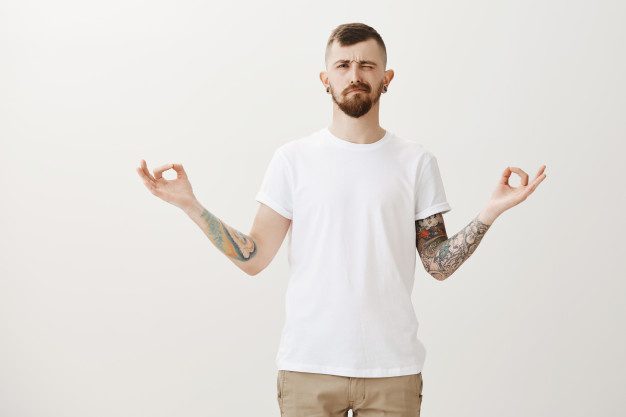
SOUNDS
Sounds are a significant source of thoughts; like them, sounds are also part of your meditation practice.
Even if you close your eyes during Meditation, your hearing remains active. You keep hearing the surrounding sounds: voices, the passing car, the barking of a dog, etc. But Meditation leads you beyond these sounds.
You do not have to do anything. Stay indifferent to them. Let them come, vibrate, and observe how you become aware of them and how they disappear when you return to the object of attention.
If you stop at them, you only give them meaning and think more about them. As long as you return to the object of attention, you can always detach yourself from thoughts or sounds.
SENSATIONS
Your physical body is another source of thoughts. Because of it, you experience sensations. Always choose comfort when it comes to your body. The more comfortable you are during Meditation, the more your body will not be a distraction.
If your legs are numb during Meditation, stretch them to relax, then slowly return to the object of attention.
If you feel pain in the lower back, put a cushion under the buttocks to sit more comfortably. Massage the painful area a little, then return slightly to the object of your attention.
It is essential for your back to be straight and to feel comfortable all the time.
During Meditation, you can feel other natural sensations, such as:
- boredom
- anxiety
- a general soothing sensation
- complete peace of mind
- tingling
- accelerated breathing
- dizziness
- constrictions in the head
- headache
These last three sensations often arise when you force yourself to meditate. To ease them, take slow, deep breaths to help yourself relax and calm down.
All these sensations you may experience during Meditation are expected, especially as a beginner.
Your body is accustomed to constant activity in every moment of life. It needs time to learn how to be still when changing its state. Be patient and allow it the time to adjust.
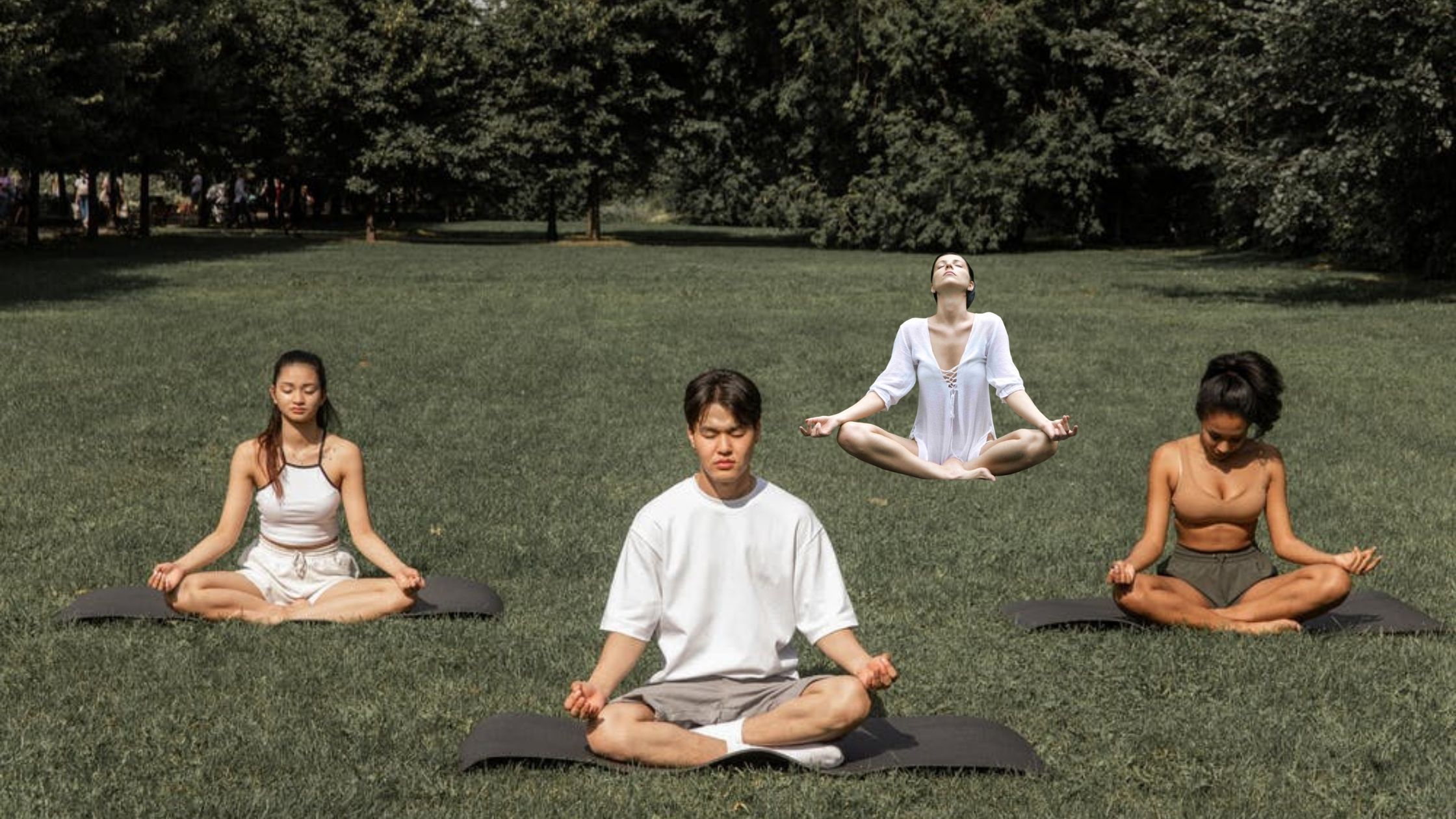
FALLING ASLEEP
When you meditate, your mind and body relax, which may make you fall asleep.
Sleep is an unconscious way to withdraw energy from the body and senses and refocus it on the brain. Sleep is refreshing primarily due to this interiorization of energy.
For the first time as a beginner, falling asleep is excellent. It means you allowed yourself to calm down and relax enough to leave yourself in a state to recover your body and mind. This is a significant indication of authentic Meditation.
If you fall asleep every time you meditate, it’s a sign you’re not getting enough rest and you should prioritize addressing this.
Every thought, sensation, sound, emotion, and even sleep is part of the meditation experience. As you continue to practice, you’ll reach a deeper level of existence—one much more profound than when you first began.
These experiences help you evolve and will best confirm your transformation.
RELEASE STRESS
The tensions built up over time in your body leave their mark, impacting your emotional and physical health.
Similarly, repressed feelings, expectations, or unfulfilled needs can eventually manifest as emotional or physical disorders. If you don’t change the way you relate to them, they will continue to surface at a deeper level.
But with Meditation’s help, you can eliminate these negative aspects.
For beginners, stress relief during Meditation manifests through yawning, sighing, crying, smiling, laughing, moments of revelation, intense emotions, or visual experiences.
On the physical level, you may feel heaviness or lightness, a sense of cold or heat, tingling, or energy in certain body parts.
During Meditation, you can also visualize the colors, shapes, symbols, and faces of loved ones or those who passed away (which happened in my case). But don’t get scared because it is part of the awareness process.
Each person lives differently from the experiences during Meditation because it also depends on their emotional baggage.
I had a case among my students in which a student went into uncontrolled crying after a few minutes of hysterical laughter.
After there was total silence, she finished the session with a smile on her face.
Others begin to fall asleep right after the first few minutes. The same thing happened to me in my first meditation practice.
I also experienced some of them, and it is not excluded that you will also live many of those experiences.
All of them are natural manifestations, which indicate that you become aware of your unconditional self.
FINAL THOUGHTS
Well, my dears, this has been the first part of the insights from the Meditation Guide for Beginners.
In the second part, you can learn how to prepare and develop a daily meditation program, how to overcome the excuses that condition you not to meditate, and apply all the information from the guide to start with a first meditation session.
Feel free to share your personal experiences. Every piece of information adds knowledge to us, so they are welcome!
You can continue reading the second part of the guide by accessing the link below.
MEDITATION GUIDE FOR BEGINNERS PART 2
Prepare and Develop a daily Meditation Program
Till next time…
Touch Your Inner Space And Become More Curious About Yourself.
Founder of Dare & Be.
Contact: support@dareandbe.com
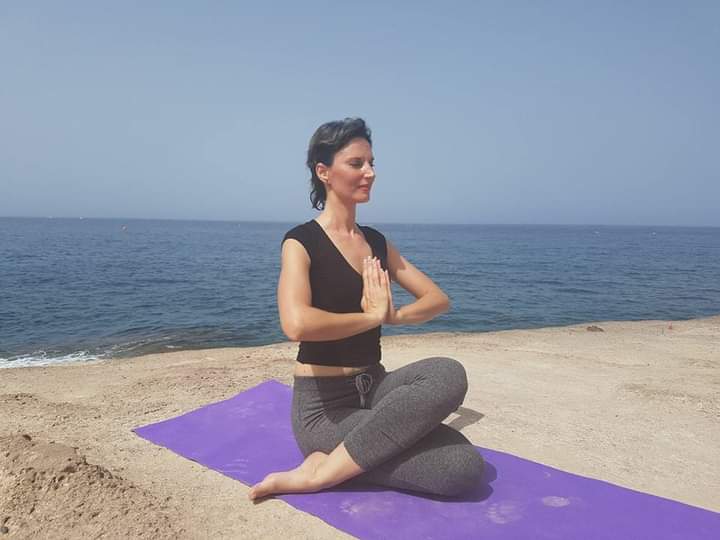
A very useful article for those interested in reducing stress in their lives. But not only that, meditation has many values. But you have to do it right. That’s why I especially appreciate your article. Especially since you give information about the normal phenomena that take place during meditation. I did not know that each person has different reactions during meditation compared to other people.
Hi Carmen,
Thank you for stopping by. In meditation there is no “you do it right” or “you do it wrong”, because meditation is you, it is your natural state of being. The moment you allow your body and mind to relax and you are no longer conditioned by the existential layers, you can see and listen to your true self.
Each person is unique in its own way. Some people may have more intense emotional load than others. And as meditation is self-discovery, the experiences lived during it can be different.
What an excellent post to help first timers like me try mediation. I have tried to do it in short bursts, but felt all the things you said like boredom and anxiety. I am that person that is trying so hard to shut off my brain that this then becomes the whole time spent.
The other tough part is to try for the first time and be successful, I think I just haven’t given it enough of a try. Thank you for the post and I will definitely give it another try.
Hi Coralie,
Thank you for appreciation. If you haven’t read the second part of the guide, in which I explain how you can integrate meditation into daily life, and how to do it practically, I attach the link to have a look. https://dareandbe.com/meditati…
Also, if you want to have a better understanding of what meditation means, I think the information in the attached link will give you an explanation from another perspective. https://dareandbe.com/the-art-…
Thank you for stopping by.
Enjoy reading, as well as your meditation practice.
To be honest, I found this article really helpful. For a long time, I’ve heard about the benefits of meditation and why we should do it regularly, but I never knew how to do it properly, and what to expect from it. So, I am glad I found your Meditation guide. It was very useful. I am willing to try to incorporate meditation into my daily life. I hope I stay consistent in my decision.
Hi Jon,
I’m glad that the information in the guide came as a plus to what you knew about meditation, and that it motivated you to consider trying the practice. If you have read the second part of the guide, you can make use of the tips provided there, on how to make from meditation practice a habit.